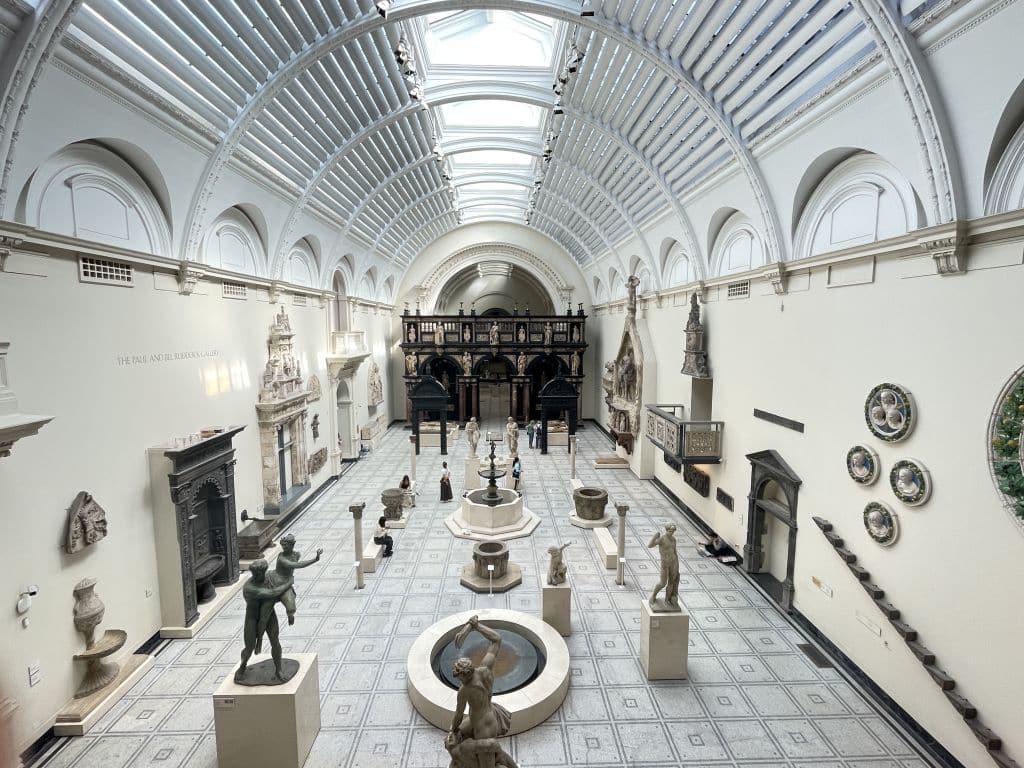TOPLINE
The British Museum and London’s Victoria and Albert Museum (V&A) announced on Thursday that 32 gold and silver artifacts from Ghana, which were looted during the Anglo-Ashanti Wars in the 1800s, would return to the country for the first time in 150 years—but only for a limited amount of time.
KEY FACTS
The artifacts include 17 items from the V&A and 15 items from the British Museum, including dozens of gold items looted while the British Army raided the Ashanti royal palace that were auctioned off to the museums in April 1874.
The items will be displayed as part of the silver jubilee of Asantehene Otumfuo Osei Tutu II, the ceremonial king of the Ashanti people.
However, the exhibition will not permanently remain in Ghana—the pieces are only on loan for three years, and will return to the U.K. in 2027, the British Museum told Forbes in an email.
Several British laws also prevent the museums from outright returning these artifacts to Ghana: the British Museum Act of 1963 bans the museum from removing an artifact from its collection unless it is a duplicate, is damaged or is deemed “unfit” for the collection.
The National Heritage Act of 1983 prevents the V&A from legally returning the artifacts as well, the museum told Forbes, and noted they have not received any formal requests for repatriation for the pieces being lent.
The Britsh Museum did not say if there were any plans to permanently return the artifacts in the works, but praised the loan agreement as “a way of working together with countries and communities within the realms of the law.”
KEY BACKGROUND
The British Museum and other collections in Europe and North America are facing criticism and calls for the return of artwork, artifacts and human remains looted during wars or obtained in other ways while these nations ruled colonial empires across the world. Among these are the famous Benin Bronzes, a collection of bronze sculptures looted from the Kingdom of Benin in modern-day Nigeria. Other contentious collections include the Maqdala collection, taken from Ethiopia in the 1800s, as well as the human remains of more than 6,000 people, including Egyptian mummies.
TANGENT
One of the most contentious sets of artifacts displayed in the British Museum are the Parthenon Sculptures, a collection of 2,500-year-old marble sculptures a British diplomat personally removed from the famous temple in Athens in 1806. The sculptures have caused an ongoing diplomatic row between the U.K. and Greece, who contend they were looted. In November, Greek Prime Minister Kyriakos Mitsotakis canceled a meeting with British Prime Minister Rishi Sunak after he ruled out changing a law that bans their return to Greece. After the Museum’s announcement on Thursday, Mitsotakis renewed calls to return the sculptures. “Only by being seen together, in situ, in the shadow of the Acropolis, can we truly appreciate their immense cultural importance,” Mitsotakis said in a statement, Reuters reported.
